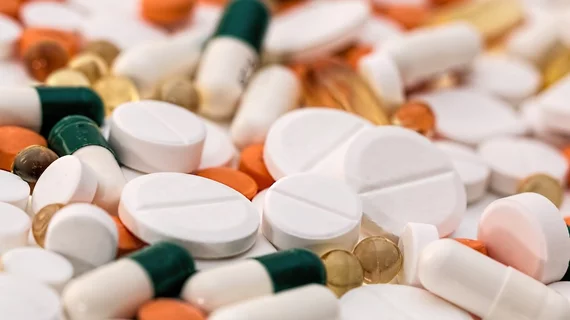Landmark opioid trial in Baltimore set to begin; Johnson & Johnson settles to avoid jury
Baltimore is moving forward with its lawsuits against multiple drug manufacturers in a landmark court case set to begin Monday. The city alleged eight companies each contributed to the opioid crisis in the city, specifically providing patients with easy and unlawful access to addictive painkillers between 2006 and 2019.
To date, six companies have reached pretrial agreements, with Johnson & Johnson settling just this week for an undisclosed amount. Baltimore Mayor Brandon Scott’s office told reporters the city “cannot at this time discuss any of the specific terms of the settlement” with Johnson & Johnson.
The charges against the two remaining defendants, drug suppliers McKesson and AmerisourceBergen, are set to move forward, with jury selection for the Monday trial already complete.
Like the other six former defendants, the two companies are accused of profiting off the opioid crisis by failing to adhere to laws that limit distribution and supply of the highly addictive drugs. Baltimore was hit especially hard by the opioid epidemic, with overdose rates higher than any other major American City.
Over $400 million already paid out
Last week, Baltimore declared it had reached a settlement with pharmacy chain Walgreens, which is expected to result in an $80 million payout next month. When announcing that settlement, city officials said the amount of collective fines from the accused companies totaled around $402.5 million.
Prior to the Walgreens settlement, Baltimore reached agreements with pharmaceutical company Allergan and CVS Health for $45 million each. Drug company Teva paid $80 million to resolve its piece of the allegations, and medical supply house Cardinal Health was fined $125 million.
The lawsuits against all of the companies began in 2022 when the city declined to sign on to a related set of settlements reached by the Attorneys General’s office of the state of Maryland, opting instead to bring its own cases against the same eight defendants.
Maryland received $395 million in payouts. Baltimore has already exceeded that amount, with the case against McKesson and AmerisourceBergen, who will serve as co-defendants, still pending.
Baltimore is still working on how to allocate the funds from the lawsuits but has said in statements the money will be used to fund community programs and addiction services after legal fees are paid.
With the trial set for Monday, it is not currently clear if McKesson and AmerisourceBergen will opt to settle or if the cases will be resolved by a jury.

